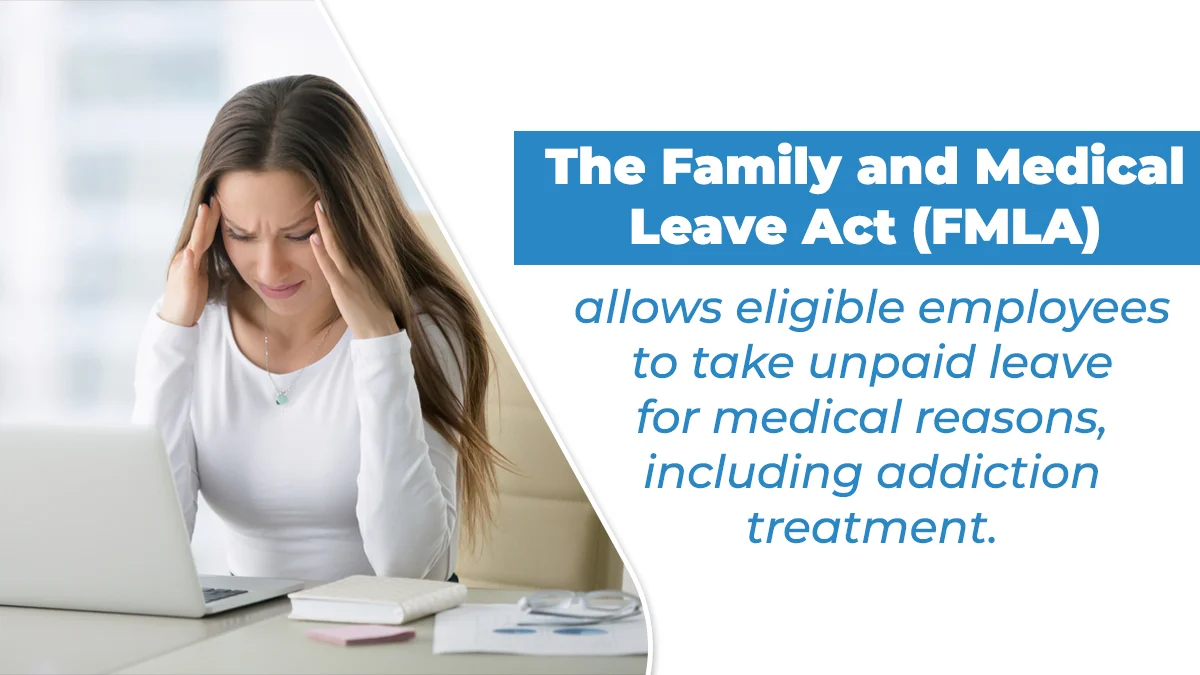
Examples Of Dual Diagnosis
Explore the examples of dual diagnosis and its treatment plans for better outcomes with The Recovery Team-Newton.

When informing your employer about entering rehab, honesty and clarity are essential to mitigate the consequences. Clearly state your intention to enter a rehabilitation program and provide a brief overview of its duration and goals.
Emphasize your dedication to maintaining productivity and fulfilling your responsibilities during your absence. Assure them of your commitment to returning to work healthier and more focused.
Open communication fosters understanding and support. This article explores the best approach to achieve these goals and ensure a smooth transition.
Being honest with your employer about your addiction and need for rehab builds trust and fosters support. Here’s what you need to know:
The Recovery Team-Newton provides comprehensive rehabilitation services tailored to support individuals on their journey to recovery. Call us at (508) 978-2772 to explore our beneficial services.
Being honest with your employer about your addiction builds trust and helps them understand your situation better. Honesty allows for support and accommodations, ensuring a smoother process during your rehabilitation. It also demonstrates integrity and a commitment to addressing the issue responsibly.
Concealing addiction may lead to misunderstandings and missed opportunities for assistance. Open communication fosters a supportive work environment, encouraging productivity and well-being. By being truthful, you pave the way for understanding and collaboration, benefiting you and your employer in the journey toward recovery.
Understand your rights when seeking rehab for addiction. Knowing your legal protections can help you navigate the process with confidence.
The Americans with Disabilities Act (ADA) prohibits discrimination against individuals with disabilities, including those seeking rehabilitation for addiction. It ensures equal access to employment opportunities and reasonable accommodations for individuals undergoing treatment.
The Family and Medical Leave Act (FMLA) allows eligible employees to take unpaid leave for medical reasons, including addiction treatment. It provides job protection and continuation of health benefits during your absence from rehab.
Prepare yourself before talking to your employer about your addiction and need for rehab. Take time to organize your thoughts and emotions, and consider what you want to communicate during the discussion.
Document your substance abuse history and your recovery plan. It may include medical records, therapy notes, and a detailed treatment plan from your rehab facility. This documentation can help you explain your situation more effectively to your employer.
Obtain a treatment verification from your rehab facility. This document confirms your enrollment and participation in the program and may be required by your employer for administrative purposes or to qualify for benefits such as medical leave. People must obtain this verification promptly to facilitate smooth communication with their employers.
When informing your employer or boss about your need for rehab due to addiction, choose an appropriate time when both you and your employer can have a private conversation without distractions. Start the conversation by expressing your appreciation for the opportunity to discuss a personal matter.
Be open and direct about your situation, avoiding vague or ambiguous language. Explain your desire to seek treatment for substance use disorder and maintain productivity during your absence to show your commitment to your job. Setting the right tone and timing can facilitate constructive dialogue and support from your employer.
Employers must maintain confidentiality regarding your addiction and rehab status. They cannot disclose this information without your consent, as it is protected under the Americans with Disabilities Act (ADA) and the Health Insurance Portability and Accountability Act (HIPAA). However, they can share information with relevant personnel on a need-to-know basis, such as HR or supervisors involved in providing accommodations. Comprehending your rights and communicating any concerns about privacy breaches with your employer is essential to uphold your confidentiality.
Overcoming guilt and fear associated with addiction and rehab is essential for your well-being. Recognize that addiction is a medical condition, not a moral failing, and seeking help is a courageous step towards recovery. Engage in therapy or support groups to address underlying emotions and learn coping strategies to manage these feelings effectively.
Facing stigma surrounding addiction and rehab can be challenging, but remember that seeking help is a sign of strength, not weakness. Educate yourself and others about addiction as a medical condition, reducing misconceptions and judgment. Surround yourself with supportive individuals who understand and respect your journey towards recovery.
Seeking support from colleagues and friends can provide valuable emotional assistance during rehab. Share your experiences and needs with trusted individuals who can offer understanding and encouragement. Establish clear boundaries for communication and support, ensuring that you receive the assistance you need while maintaining your privacy and autonomy.
Crafting a detailed plan to ensure a smooth transition is essential when preparing for your absence due to rehab. Considering the person’s expertise and workload, decide who will handle your responsibilities in your absence. Keep your employer updated throughout the process, providing them with necessary information about your treatment schedule and expected duration of absence.
Choose employees who can effectively manage your tasks and responsibilities while in drug rehab. Consider their skills, knowledge, and availability to ensure your work is in capable hands during your absence. Communicate with them beforehand to discuss expectations and provide necessary training or guidance.
Maintain open communication with your employer throughout your rehab journey, informing them about your progress and any changes in your treatment plan. Update them on your expected return date and any adjustments to accommodate your absence. Regular updates foster transparency and ensure your employer can plan accordingly in your absence.
Discuss post-rehab arrangements with your employer to ensure a smooth transition back to work. Federal laws such as the Family Medical Leave Act (FMLA) provide job-protected leave for individuals seeking alcohol rehab or other substance abuse treatment. Consider utilizing employee assistance programs and healthcare providers to support your return to work.
Adjusting to your workplace post-rehab may require accommodations outlined in your employer’s policies or employee handbook. Communicate openly with your human resources department about your needs and any legal rights regarding your return.
Take the time to adjust gradually and seek support from colleagues or mental health professionals as needed. With the proper support and planning, returning to work after rehab can be a positive step towards recovery.
At The Recovery Team-Newton, we understand the significance of seeking professional help when addiction affects individuals in the workplace.
From our day treatment program, which offers structured support, to medication-assisted treatment, which provides comprehensive medical assistance, our intensive outpatient program offers flexibility for busy schedules. With a partial hospitalization program, we provide intensive care when needed most.
Don’t let addiction hold you back any longer. Reach out at (508) 978-2772 and confidently tackle your path to recovery with us.
It’s advisable to inform your employer if you’re in recovery from alcohol addiction or a serious health condition. It could help protect your rights and ensure proper support. You might consider discussing it if you take a leave of absence for rehab programs or medical treatment.
In the United States, the Family and Medical Leave Act (FMLA) allows for weeks of unpaid leave for such situations. However, disclosure depends on your situation and workplace environment. It’s essential to weigh the potential impact on your work performance and seek advice from medical professionals or support groups before deciding.

Explore the examples of dual diagnosis and its treatment plans for better outcomes with The Recovery Team-Newton.

Explore how long drug rehab programs are with the complete guide from The Recovery Team-Newton.

How much does drug rehab cost without insurance? The Recovery Team-Newton explains financing options and resources.